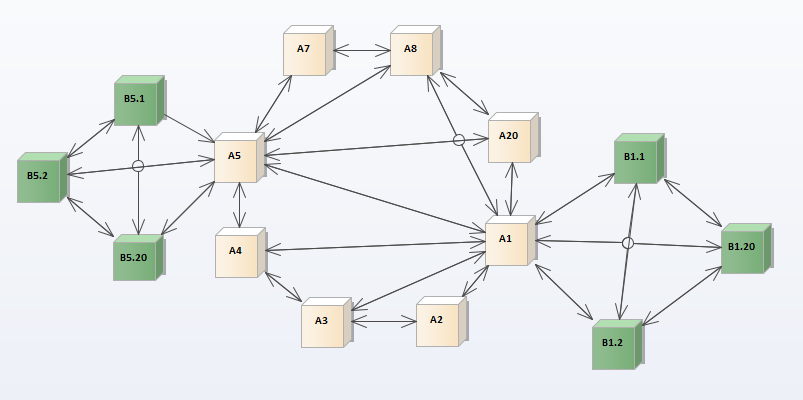-
1. Re: Infinispan - cross site deployment with 400 nodes
pruivo Jul 5, 2017 5:47 AM (in response to horneastefan)Hi Stefan,
why is every node communicating via WAN? is every node in its own data center?
Replicated mode works with any number of nodes but it is not cheap. The higher the number of nodes involved in a replicated cache, the high the response time in each update and that is why we don't recommend replicated mode for large clusters.
The cross site replication also work fine with any number of nodes but, in the same way as in replicated caches, the communication cost increases when multiple sites are involved.
There is a small issue: the backup site won't backup remote data to another site. For example, if you have Site1 backups to Site2; and Site2 backups to Site3; if you update data in Site1 it is going to be replicated to Site2. Site2 won't replicate to Site3!
Why the nodes B needs to have the data locally?
I think a client-server approach would fit better in your scenario. You could create a cluster of A nodes with Infinispan Server and the B nodes would be the clients.
The clients may store some data locally with near cache - check Infinispan 9.0 User Guide.
Cheers,
Pedro
-
2. Re: Infinispan - cross site deployment with 400 nodes
horneastefan Jul 5, 2017 6:33 AM (in response to pruivo)Hi Pedro,
Thanks for the quick reply.
Regarding WAN Communication, as a general rule, all nodes are in their own data center, and only in some isolated cases a data center will host more than 1 node.
I will think if we really need to have all the data on each B node. Maybe between B nodes a partitioned cache could work, and we should only store the whole data locally on node A. On node A the data should be stored as service data will contain personal contact information for all admins of nodes A and B, so in case of a partition where node A cannot comunicate with any other node, the admin of that node A can at least obtain the contact information of other admins from it's own locally stored data. (Of course it would be ideal that a node B admin should have access to that info, we will figure out some way for node B admins to access the whole data found on the parent node A).
I will study the user guide for client server deployment and will get back to you.
Cheers,
Stefan
